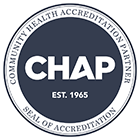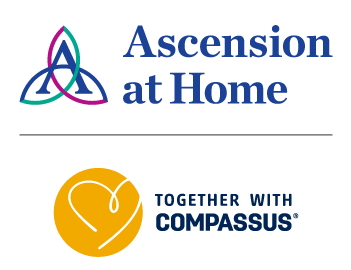
Call 206-299-6040
Hospice Care in Tukwila
Our hospice care team at Providence at Home with Compassus Hospice Care, Tukwila offers personalized care tailored to your needs and values. If you or someone you love has a life-limiting illness, we’re here to listen and help.
Our care extends to the entire family, with medical, practical, and emotional support throughout the hospice journey. Call us to learn how Medicare-approved support enables you to live every moment of life as fully as possible.
Counties served: King, Snohomish County (Woodinville), Pierce
What Is Hospice Care?
Hospice care is a type of healthcare that aims to reduce suffering and promote comfort at the end of an individual’s life. Pain and any other symptoms are managed around the clock, and the hospice team focuses greatly on spiritual and emotional health as well.
The foundations of hospice include nursing care with an emphasis on managing symptoms, practical assistance, and emotional support. Caring for a loved one at home can be challenging. Our goal is to provide timely services to help your family make the most of your time together. Our hospice care teams review your options with you, ensuring that you remain in control of your care every step of the way. We also offer grief and loss counseling, support with planning, and guidance through the complexities of the medical system.
Services Include:
- Home medical equipment and personal supplies
- Around-the-clock access to care
- Management of complex pain and other symptoms
- Hospice aide for personal care and light homemaking
- Medical social services
- Spiritual care and support
- Physical, occupational, dietary, and speech therapies
- Support from volunteers
- Short-term inpatient respite care (relief) for family caregivers
- Ongoing Grief counseling for the patient, family, and friends
Hospice has four levels of care, carried out by a team of professionals to ensure dignity and comfort at the end of an individual’s life.
Hospice is Medicare Benefit You Have Earned
Did you know that hospice is fully covered by Medicare? That’s right, you can rest assured that nursing services, medications, supplies and equipment are covered when there is a diagnosis requiring hospice care.
Care is provided wherever you call home, whether it be a hospital, nursing home, assisted living or your personal residence in Tukwila, Washington.
Your benefits include:
- Visits from our hospice team, based on your needs and care plan
- Home medical equipment, medication, and personal care supplies
- Care coordinated with your doctor
- Hospice aides to help with the tasks of daily living
- Physical, dietary, and other therapy services
- We Honor Veterans program
- Respite care (relief) for family caregivers
- Spiritual care and support
- Ongoing grief support
Where to Begin
Most families receive care in their homes. If that is not possible, we can provide care in nursing facilities, inpatient hospice, or other settings.




 Each day, hospice volunteers touch the lives of our patients and their families. Whether reading to a patient, preparing a meal for a family or cleaning up around the house, each gesture makes a meaningful impact on those we serve.
Each day, hospice volunteers touch the lives of our patients and their families. Whether reading to a patient, preparing a meal for a family or cleaning up around the house, each gesture makes a meaningful impact on those we serve.


